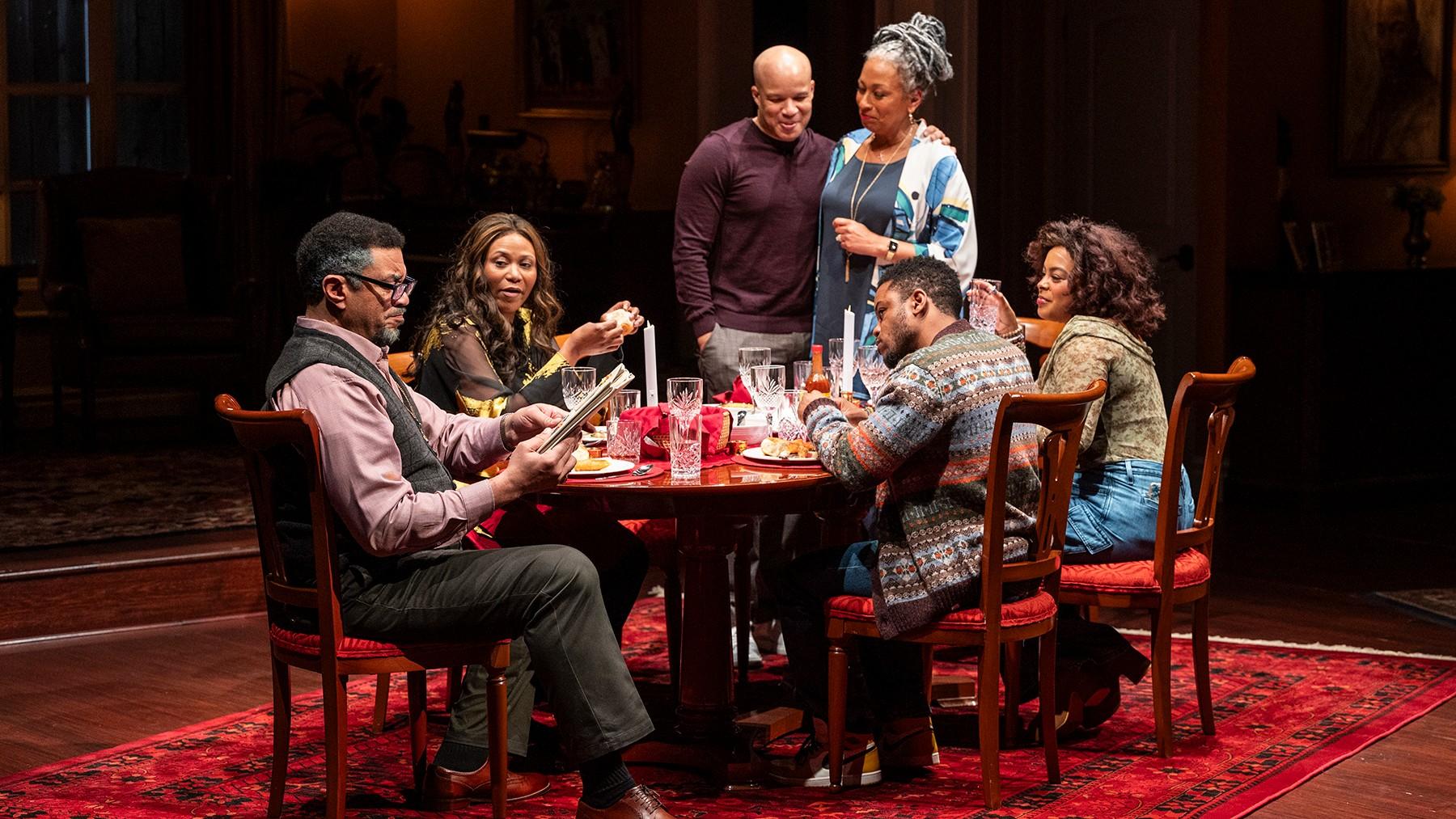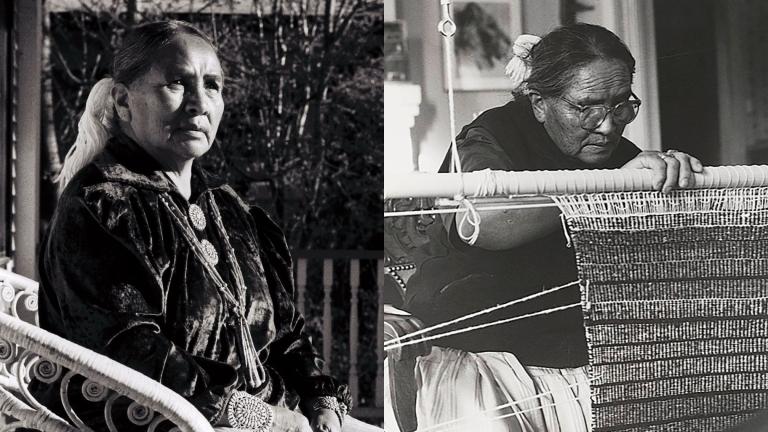 Harry Lennix, clockwise from left, Alana Arenas, Glenn Davis, Tamara Tunie, Ayanna Bria Bakari and Jon Michael Hill in Steppenwolf Theatre Company’s “Purpose.” (Credit: Michael Brosilow)
Harry Lennix, clockwise from left, Alana Arenas, Glenn Davis, Tamara Tunie, Ayanna Bria Bakari and Jon Michael Hill in Steppenwolf Theatre Company’s “Purpose.” (Credit: Michael Brosilow)
It’s a family story everyone can relate to. There is the family intentionally shown to the public, and then the real family that exists behind closed doors.
“Purpose,” the new world premiere play from Branden Jacobs-Jenkins now running at Steppenwolf, is also a very specific story about a family rooted in Black American politics, featuring a Civil Rights activist, pastors and a congressman.
Set in the Jasper family home during a snowstorm in Chicago, the fictional African American Civil Rights activist Solomon “Sonny” Jasper (Harry Lennix) bellows as the prideful father of his two-son household. With his wife Claudine (Tamara Tunie) at the helm of the family, the couple exudes a parental dynamic that one might perceive as strict with high expectations.
The play is narrated by Jon Michael Hill, who plays younger son Nazareth “Naz” Jasper, who occupies the role of the family black sheep. Always off on his own adventures photographing nature, it’s been several years since he’s spent this much time with his family. His older brother Junior (Glenn Davis) is his own kind of black sheep and has just finished a 30-month sentence in federal prison for wire and mail fraud for misusing $750,000 in campaign funds.
From the outside looking in, the Jasper family appears as a traditional upper-class Black household, with a shrine of MLK and other Civil Rights leaders displayed at their home’s entrance. But slowly throughout the production, the cracks within their lives take hold and the plot unravels to reveal the true purpose of this story.
We quickly learn that Junior’s role as the black sheep has been something he’s seemingly been dealing with his entire life. With an enabling mother and disapproving father, it appears that Junior has spent his entire life trying to please his parents, only to constantly, in his eyes, fail. That lack of self-love bleeds into his dynamic with wife Morgan (Alana Arenas) and their two children. We learn that she has been sentenced to 12 months in prison for signing her name on false tax returns, and is set to begin her sentence shortly now that her husband has returned.
 Tamara Tunie, from left, Jon Michael Hill , Ayanna Bria Bakari and HarryLennix in Steppenwolf Theatre Company’s world premiere of “Purpose” by Branden Jacobs-Jenkins. (Credit: Michael Brosilow)
Tamara Tunie, from left, Jon Michael Hill , Ayanna Bria Bakari and HarryLennix in Steppenwolf Theatre Company’s world premiere of “Purpose” by Branden Jacobs-Jenkins. (Credit: Michael Brosilow)
Written by Jacobs-Jenkins, who has twice been a finalist for the Pulitzer Prize, the production is directed by two-time Tony winner Phylicia Rashad, who may be most known to a wider audience for her role as Clair Huxtable in “The Cosby Show.” Her influence and directorial hand is very much present on stage. With clear diction, each line was delivered by the actors with intent as they shared the stories of their characters’ own purpose.
In addition to Morgan, also stood Aziza (Ayanna Bria Bakari) a “friend” to Naz. Together, they signify the influence of a woman’s impact as a partner, in both traditional and untraditional roles. For Morgan, it is upholding to the role of a traditional “wife’s duty,” sticking beside her husband no matter the cost. While that should seemingly clarify Junior's sense of purpose, it appears to only make it worse.
As for Aiza, she served as a less traditional “partner” of sorts, as her relationship history with Naz is revealed. Together, both women help their partner explore the role of their “purpose” in juxtaposition of the “purpose” that has been bestowed upon them by their parents.
The story ends with finality and the idea of how purpose can be found is left better understood as the audience learns Sonny and Claudine’s reasons for how they felt best to raise their sons. As for Naz and his brother, after a shocking moment of self-realization, the aftermath of this event leaves the entire family with a different sense of purpose, leaving Naz with more questions that he started with.
“Purpose” has already been extended and runs through May 12 at Steppenwolf Theatre, 1650 N. Halsted St. For more information visit steppenwolf.org.
Follow Angel Idowu on Twitter: @angelidowu3
Angel Idowu is the JCS Fund of the DuPage Foundation Arts Correspondent.








